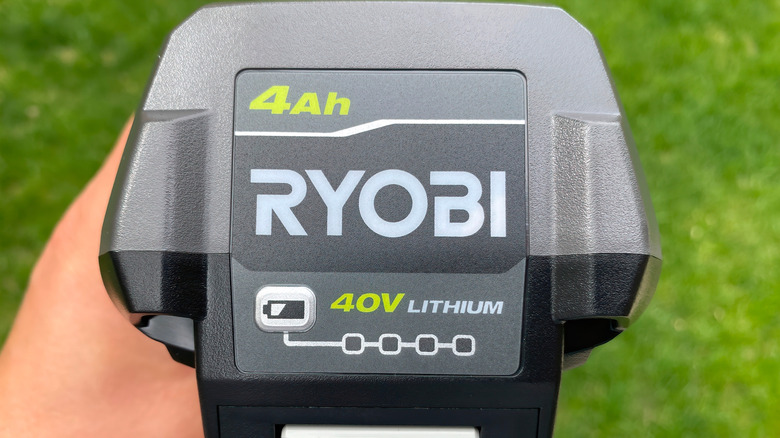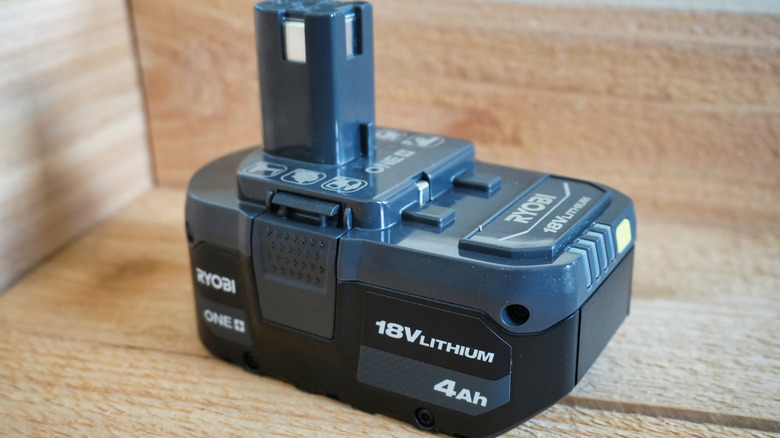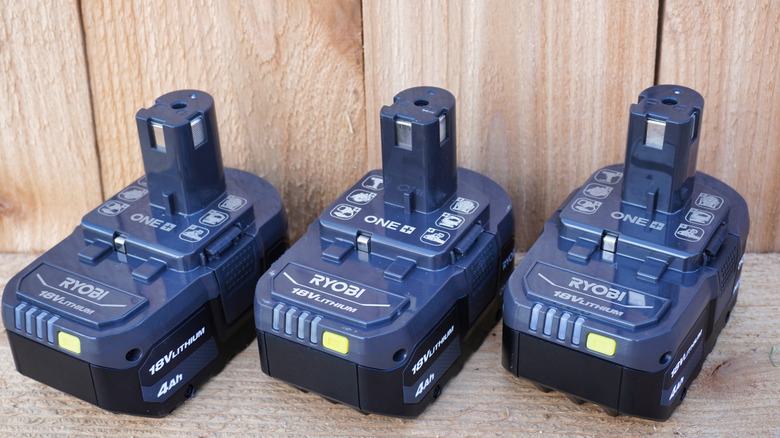Can You Refurbish Or Rebuild Ryobi Batteries?
Whether you're building custom furniture or performing car repairs, power tools can make all the difference. And that's why major power tool brands like Ryobi have long been a preferred choice among pros and hobbyists. Ryobi's range of products spans from professional grade top-rated gear to budget-friendly hand tools for homeowners.
Among the most beloved of Ryobi's product line are its cordless power tools that employ 18V and 40V lithium-ion batteries. These powerful rechargeable batteries are designed to work in tandem with the company's various power tools, provided they've the same voltage. They're also reliable with a three to six year lifespan, but that's not to say they are not immune to breakdowns.
Ryobi batteries are prone to several common problems, such as failing to charge or overheating. When this happens, you might be tempted to rebuild, refurbish, or reset the batteries instead of buying a replacement. But before you grab a screwdriver, it's worth asking: Is resetting a Ryobi battery really worth the risk? Some owners make such repairs seem like a cost-effective solution. However, while new Ryobi batteries are costly, rebuilding an almost dead battery is neither safe nor simple. Below, we'll explore the risks of refurbishing a Ryobi battery and decide whether the savings are worth the potential hazards.
The risks of refurbishing a Ryobi battery by yourself
Admittedly, rebuilding an old battery has its allure. You'll protect the environment by reducing hazardous waste and even save money. But even if you have the right tools, extensive YouTube tutorials, and a DIY knowledge base, things can go horribly wrong.
For starters, lithium-ion batteries are highly volatile. They contain highly flammable liquid electrolytes that, when mishandled, can short-circuit and potentially ignite a fire. Worse yet, when you open the casing of an old battery, the toxic chemicals released can be as harmful to your health as they can to your property. Even if you manage to source and match replacement cells, success isn't guaranteed.
In fact, using low-quality or off-brand cells that don't align with Ryobi's specified charge and discharge rates could potentially throw the pack off balance. As a result, you may end up with a battery that doesn't charge properly or fails after a few uses. In some cases, a poorly refurbished battery can damage your Ryobi lithium tools with incorrect power or voltage. Doing so will void your tool's and battery's warranty, as Ryobi won't cover damage brought on by ill-fitting components or unauthorized repairs.
Is third-party battery rebuilding worth it?
Compared to opening up your rechargeable battery at home, taking it to a third-party repair center for rebuilding is a much safer option. Some professionals have made it their life mission to fix Ryobi lithium-ion batteries. But despite having the tools and training needed to replace cells correctly, there are caveats even to these repairs.
For instance, the services are not affiliated with Ryobi. The technicians may not understand the nuances of the battery's design or safety systems. As a result, a poorly rebuilt pack could fail to deliver the same amount of power as a new one or not work entirely. Turnaround time is something that also needs to be taken into account. Professional rebuilding may require up to three weeks to complete, which can be inconvenient if you rely on your tools daily.
Before giving up on your battery, it's worth noting that Ryobi has several warranty options. Your battery might qualify for Ryobi's Rapid Repair or warranty replacement program. Should the battery be eligible, it can be sent in for repairs handled by Ryobi-trained technicians. This is your best option, as such servicing will meet the battery's original specifications.


